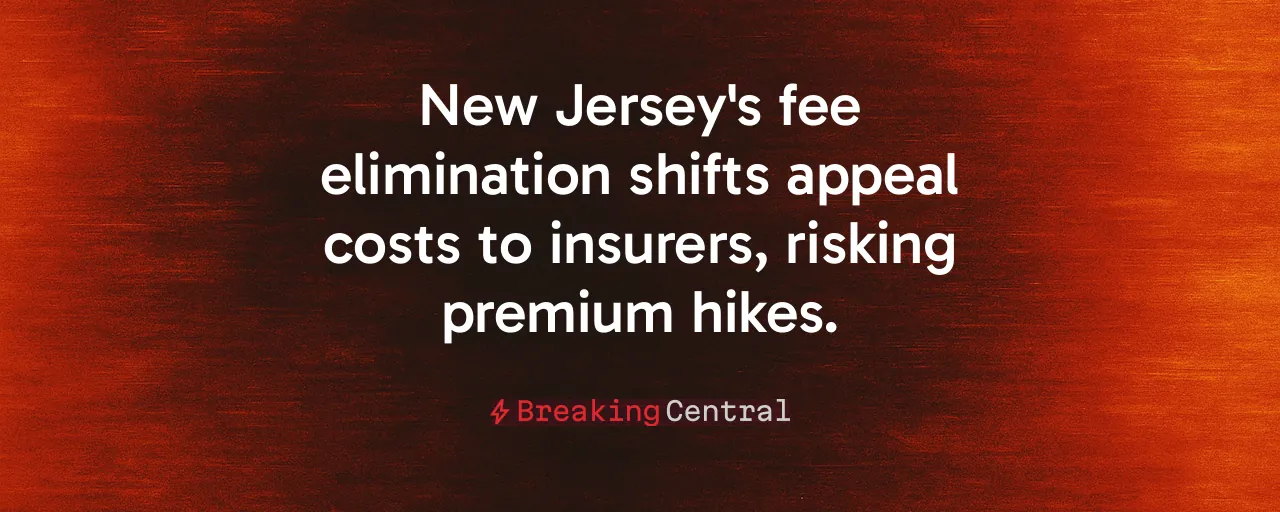A New Burden on New Jersey's Healthcare
New Jersey's latest healthcare reform hit the ground running on June 30, 2025, when Governor Phil Murphy signed legislation eliminating the $25 fee for consumers appealing health insurance denials through the Independent Health Care Appeals Program. The move, pitched as a win for patient rights, allows anyone denied coverage to challenge their insurer's decision without upfront costs. Over 800 carrier decisions were overturned or modified in 2024 alone, proving the program's value. But beneath the surface, this change raises questions about who really pays the price.
The decision reflects a broader push to remove barriers for patients, especially those struggling financially. It also shifts the full cost of appeals to insurers, who may pass those expenses onto consumers through higher premiums. For families already grappling with rising healthcare costs, this reform could feel like a double-edged sword. The stakes are high, and the ripple effects deserve a closer look.
At its core, the issue boils down to balancing access to justice with fiscal responsibility. While removing fees sounds noble, it risks overloading an already complex system. Could there be a better way to empower patients without destabilizing the market? The answer lies in aligning consumer protections with practical safeguards.
The Hidden Costs of Free Appeals
Eliminating the appeal fee transfers all administrative costs to insurers, who fund the Independent Utilization Review Organizations tasked with reviewing cases. Actuarial studies show that external review programs drive up plan administration costs, and every additional million dollars in expenses can bump premiums by 0.02 to 0.05 percent. For New Jersey's families, that could mean hundreds of dollars more annually, hitting small businesses and individual policyholders hardest.
Other states offer a cautionary tale. When appeal fees drop to zero, case filings often spike, sometimes doubling without a matching increase in successful outcomes. In 2024, New Jersey's program already saw 40 percent of cases result in overturned or modified decisions, a strong success rate. But opening the floodgates risks clogging the system with low-merit claims, delaying justice for those with legitimate grievances.
The law also sets a precedent for more state mandates, layering complexity onto an already burdened healthcare system. Insurers, facing higher litigation risks, may tighten medical necessity standards or raise rates to offset losses. This cost-shifting dynamic undermines the very affordability the reform aims to protect.
A Legacy of Oversight
New Jersey's external appeal framework, born in 1997 under the Health Care Quality Act, was designed to give consumers a voice against insurer overreach. Strengthened by federal standards in the 2010 Affordable Care Act, the system has evolved with measures like the 2023 Transparency in Prior Authorization Act. The fee elimination is the latest chapter, building on a history of consumer-focused reforms.
History also shows the perils of unchecked mandates. Hardship waivers already existed for the $25 fee, though many eligible consumers didn't know about them. Rather than scrapping the fee entirely, better outreach could have preserved access while deterring frivolous claims. The state's track record of layering regulations risks creating a system too complex for the average family to navigate.
Empowering Patients, Protecting Pockets
A smarter approach would prioritize patient empowerment without destabilizing the market. A nominal, refundable fee could deter duplicate or weak claims while ensuring access for those in need. Caps on annual appeals per enrollee could prevent abuse, protecting the system's integrity. Private arbitration, less costly than state-run reviews, could also resolve disputes faster, benefiting both consumers and carriers.
Streamlining medical necessity standards would reduce wrongful denials upfront, cutting the need for appeals. Requiring insurers to publish their denial overturn rates would incentivize better initial decisions. These steps would align consumer rights with fiscal discipline, avoiding the premium hikes that hurt working families most.
Collaboration is key. Joint advisory panels with insurers, providers, and consumers could refine the process, ensuring disputes are resolved efficiently. Periodic program reviews would track costs and outcomes, keeping the system accountable to taxpayers and policyholders alike.
Striking a Balance for the Future
New Jersey's fee elimination aims to level the playing field, but it risks tipping the scales toward higher costs and system strain. The reform's success hinges on whether it delivers justice without burdening the very families it seeks to help. Thoughtful safeguards can protect both patients and the market, ensuring healthcare remains accessible and affordable.
The path forward lies in precision, not overreach. By blending consumer protections with practical limits, New Jersey can uphold its commitment to fairness while respecting the economic realities families face. The goal is a system where patients have a voice, but not at the expense of skyrocketing premiums.
Ultimately, healthcare reform must serve people, not headlines. New Jersey's leaders have a chance to refine this policy, proving that patient rights and fiscal responsibility can coexist. For now, families wait to see whether this bold step delivers relief or just another bill.
